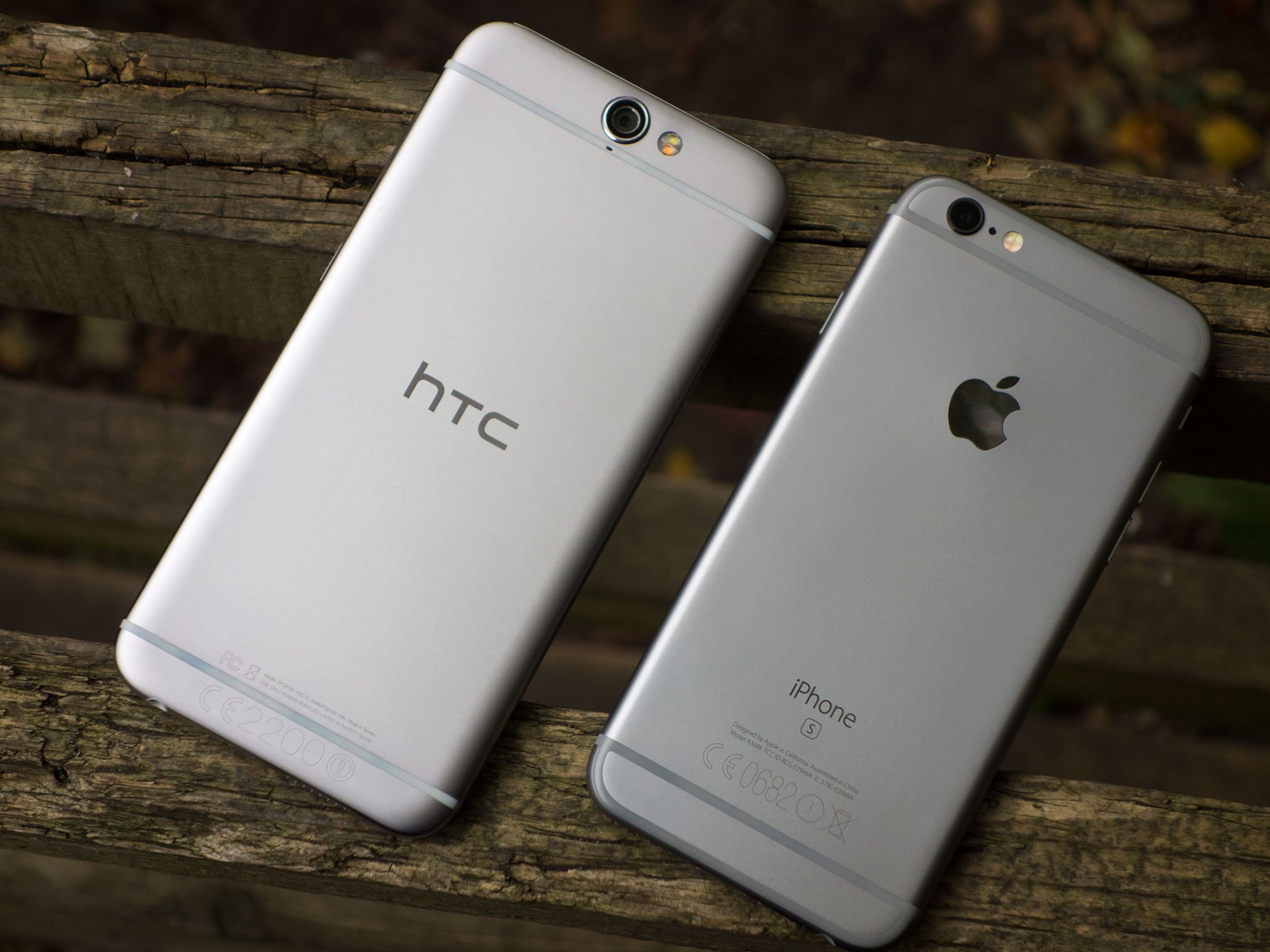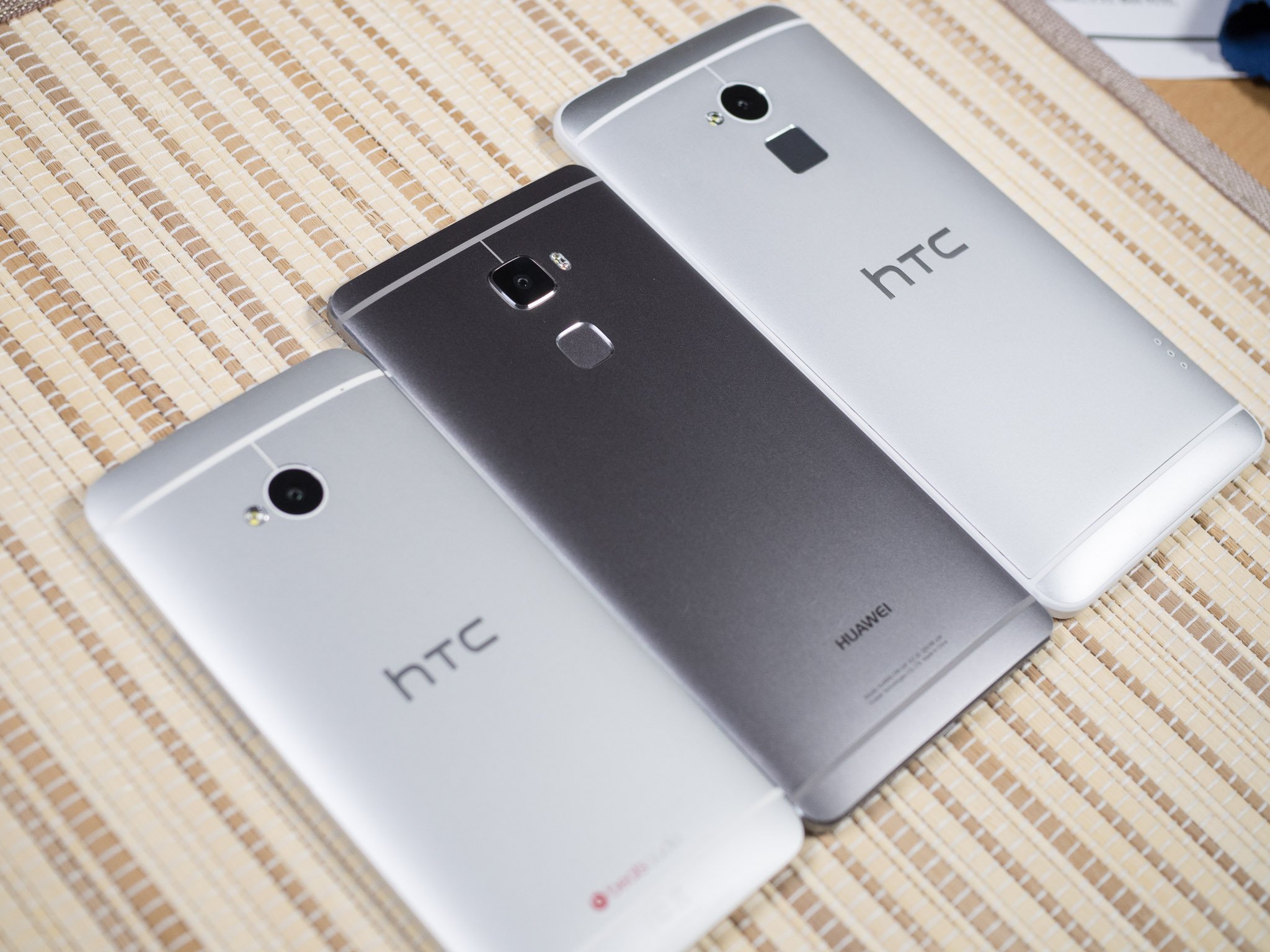Being first with design doesn’t matter when you’re struggling to get consumers to buy your products.
Worrying about which company came up with which smartphone design first is the last thing HTC needs to be concerned about these days. It’s a lose-lose argument at a time in which the Taiwanese manufacturer continues to bleed market share, struggles to turn a profit and still seems to lack focus.
How many times have we said it? Design has never been HTC’s problem.
The company knows how to design smartphones. It knows how to produce smartphones. And it knows how to engineer custom software that adds to the overall experience without overpowering down the phone. As we’ve seen in the new HTC One A9, it’s able to eke out performance from a phone that on paper shouldn’t be as capable as it is. HTC still has the best front-facing speakers you can find in a phone in the M9. And ask pretty much anyone who’s used the HTC Vive virtual reality system and you’ll hear words like “amazing” and “mind-blowing.”
And we’ve seen innovative features like HTC Zoe get lost in a muddied message and indecision over implementation. We’ve seen hardware-powered features like dual-camera refocusing — which obviously had design implications of its own — quickly replaced by similar software features on other phones (and debatable popularity in the first place). We’ve seen beloved products like the HTC RE Camera all but ignored from the point of public perception. The HTC Grip fitness tracker was teased, then shelved, surprising very few.
But design is not HTC’s problem. Message is.

Yep, the A9 looks a lot like the iPhone. But HTC needs to get back on message as to why I should buy it and not quibble over ‘copying.’
So maybe with the A9 — which, yes, sure looks a good bit like an iPhone — HTC is picking a fight. For sure it’s got a lot of us who spill virtual ink over such things talking about HTC mid-cycle. And as Owen Williams at The Next Web rightly points out, picking this sort of fight gets your name in large type, without spending the sort of marketing dollars — and we’re talking billions of dollars in the case of Samsung’s overall marketing budget in previous years. And many millions reportedly spent on the GS6 alone this year.
There’s nothing inherently wrong with poking the bear, of course. Companies have been doing this to each other for years. Samsung. Apple. Microsoft. BlackBerry. Each one tweaks another on a fairly regular basis. Sometimes it stings, sometimes it’s swing and a miss. But it’s been happening for years, long before Android became the power that it is today.
 Where I think HTC maybe has fallen short — and to be fair the A9 is all of 48 hours old at this point — has been in the immediate defensive posturing. You don’t poke the bear and then explain why. It’s a bit like a pitcher with a losing record and high ERA purposefully plunking the batter’s shoulder — and then taking to the stadium PA system to explain why it had to happen, and that really everyone should have seen that already and understand even though few can tell this at-bat from the previous dozen. “We’re not copying,” HTC Asia president Jack Tong was reported as saying shortly after the A9’s announcement this week.
Where I think HTC maybe has fallen short — and to be fair the A9 is all of 48 hours old at this point — has been in the immediate defensive posturing. You don’t poke the bear and then explain why. It’s a bit like a pitcher with a losing record and high ERA purposefully plunking the batter’s shoulder — and then taking to the stadium PA system to explain why it had to happen, and that really everyone should have seen that already and understand even though few can tell this at-bat from the previous dozen. “We’re not copying,” HTC Asia president Jack Tong was reported as saying shortly after the A9’s announcement this week.
But HTC simply doesn’t have the sort of mindshare and popularity it takes to get away with that. (Even though other companies absolutely have gained inspiration from its phones, as seen in the Huawei Mate S above.) Even if the A9 was a completely organic evolution of the company’s design ethos — and it’s easy enough to make that argument — what percentage of folks out there do you think would recognize that by sight? How does this look like anything other than the underdog standing on its tip-toes and desperately trying to catch the champ with a glancing blow while screaming “Look at meeeeee!!!” at the top of its lungs?
Again, the problem’s in the message. Or, rather, in the lack of one. HTC has left the days of its “Quietly Brilliant” ethos long behind.